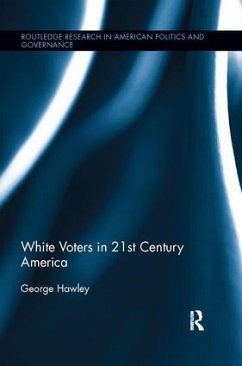
How Voters Decide
Information Processing During Election Campaigns
Versandkostenfrei!
Versandfertig in 1-2 Wochen
40,99 €
inkl. MwSt.
Weitere Ausgaben:

PAYBACK Punkte
20 °P sammeln!
This book proposes a new framework for studying voter decision making.This book attempts to redirect the field of voting behavior research by proposing a paradigm-shifting framework for studying voter decision making. An innovative experimental methodology is presented for getting 'inside the heads' of citizens as they confront the overwhelming rush of information from modern presidential election campaigns. Four broad theoretically-defined types of decision strategies that voters employ to help decide which candidate to support are described and operationally-defined. Individual and campaign-...
This book proposes a new framework for studying voter decision making.
This book attempts to redirect the field of voting behavior research by proposing a paradigm-shifting framework for studying voter decision making. An innovative experimental methodology is presented for getting 'inside the heads' of citizens as they confront the overwhelming rush of information from modern presidential election campaigns. Four broad theoretically-defined types of decision strategies that voters employ to help decide which candidate to support are described and operationally-defined. Individual and campaign-related factors that lead voters to adopt one or another of these strategies are examined. Most importantly, this research proposes a new normative focus for the scientific study of voting behavior: we should care about not just which candidate received the most votes, but also how many citizens voted correctly - that is, in accordance with their own fully-informed preferences.
Review quote:
"How Voters Decide: Information Processing during Election Campaigns is a major contribution to our understanding of voting behavior, decision making, and political psychology. Richard Lau and David Redlawsk have employed an innovative methodology to investigate the processes by which voters make sense of the enormous flow of information in a election campaign. The research is carefully designed and analyzed and the results yield insights into mechanisms of political information processing that are normally hidden from view by the standard research methods used in political science. This research shows how the strategies that people use to process information affect the electoral decisions they make and, ultimately, the extent to which elections truly represent the interests of voters." Stanley Feldman, Stony Brook University
"This innovative and exciting book sheds new light on the mysterious process at the heart of democracy: how voters choose among candidates. Lau and Redlawsk develop a range of new techniques to illuminate the otherwise hidden process of candidate choice with consistently interesting and often unexpected results." Martin Gilens, Princeton University
"This book is potentially a landmark in the history of voting behavior research. It takes on the whole structure of theory about voting in virtually all its aspects, about as wide-ranging as The American Voter of 40 years ago, and does so with unusual quality." James Stimson, University of North Carolina, Chapel Hill
"The authors have provided a fresh, innovative perspective...for graduate students, faculty and researchers in political science. it is required reading. Highly recommended." -- Choice
"This book will be of interest to political scientists and cognitive psychologists for its innovative methodology."
PsycCritiques
Table of contents:
Part I. Theory and Methods: 1. Introduction; 2. A new theory of voter decision making; 3. Studying voting as a process; 4. What is correct voting?; Part II. Information Processing: 5. What voters do - a first cut; 6. Individual differences in information processing; 7. Campaign effects on information processing; Part III. Politics: 8. Evaluating candidates; 9. Voting; 10. Voting correctly; 11. Political heuristics; Part IV. Conclusion: 12. A look back, and a look forward; Part V. Appendices and references.
This book attempts to redirect the field of voting behavior research by proposing a paradigm-shifting framework for studying voter decision making. An innovative experimental methodology is presented for getting 'inside the heads' of citizens as they confront the overwhelming rush of information from modern presidential election campaigns. Four broad theoretically-defined types of decision strategies that voters employ to help decide which candidate to support are described and operationally-defined. Individual and campaign-related factors that lead voters to adopt one or another of these strategies are examined. Most importantly, this research proposes a new normative focus for the scientific study of voting behavior: we should care about not just which candidate received the most votes, but also how many citizens voted correctly - that is, in accordance with their own fully-informed preferences.
Review quote:
"How Voters Decide: Information Processing during Election Campaigns is a major contribution to our understanding of voting behavior, decision making, and political psychology. Richard Lau and David Redlawsk have employed an innovative methodology to investigate the processes by which voters make sense of the enormous flow of information in a election campaign. The research is carefully designed and analyzed and the results yield insights into mechanisms of political information processing that are normally hidden from view by the standard research methods used in political science. This research shows how the strategies that people use to process information affect the electoral decisions they make and, ultimately, the extent to which elections truly represent the interests of voters." Stanley Feldman, Stony Brook University
"This innovative and exciting book sheds new light on the mysterious process at the heart of democracy: how voters choose among candidates. Lau and Redlawsk develop a range of new techniques to illuminate the otherwise hidden process of candidate choice with consistently interesting and often unexpected results." Martin Gilens, Princeton University
"This book is potentially a landmark in the history of voting behavior research. It takes on the whole structure of theory about voting in virtually all its aspects, about as wide-ranging as The American Voter of 40 years ago, and does so with unusual quality." James Stimson, University of North Carolina, Chapel Hill
"The authors have provided a fresh, innovative perspective...for graduate students, faculty and researchers in political science. it is required reading. Highly recommended." -- Choice
"This book will be of interest to political scientists and cognitive psychologists for its innovative methodology."
PsycCritiques
Table of contents:
Part I. Theory and Methods: 1. Introduction; 2. A new theory of voter decision making; 3. Studying voting as a process; 4. What is correct voting?; Part II. Information Processing: 5. What voters do - a first cut; 6. Individual differences in information processing; 7. Campaign effects on information processing; Part III. Politics: 8. Evaluating candidates; 9. Voting; 10. Voting correctly; 11. Political heuristics; Part IV. Conclusion: 12. A look back, and a look forward; Part V. Appendices and references.





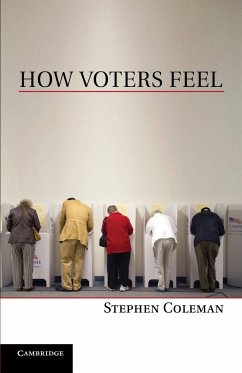
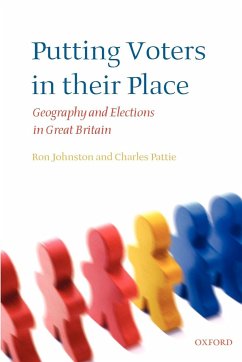
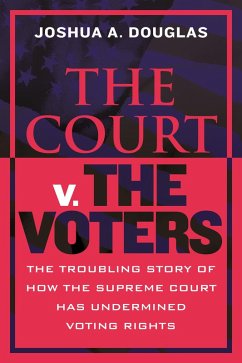
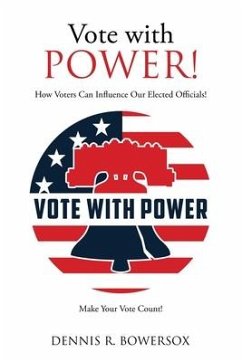
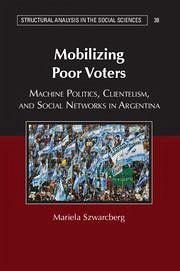
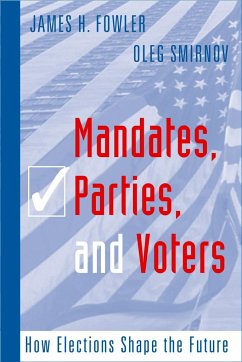
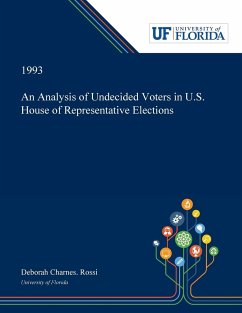
![The Voters Alphabet, or, The Issues Made Plain as ABC [microform] Cover The Voters Alphabet, or, The Issues Made Plain as ABC [microform]](https://bilder.buecher.de/produkte/65/65587/65587411n.jpg)

